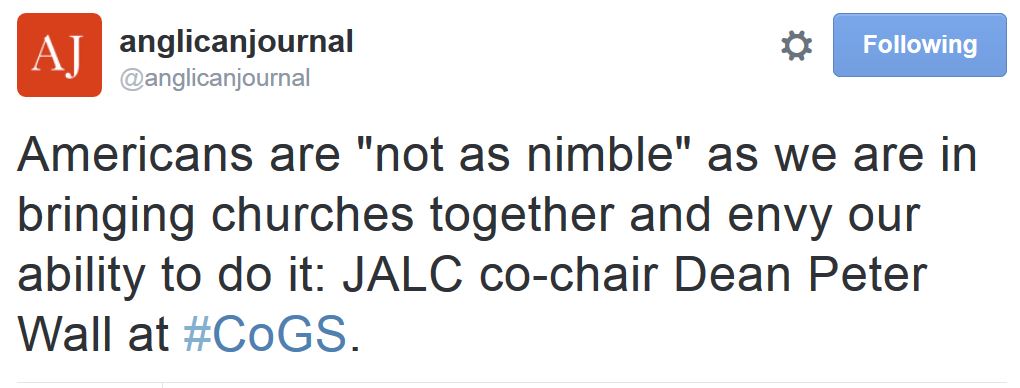It was never a secret that the purpose of the marriage canon report was to find a way – any way – to justify the marriage of same-sex couples. It was an exercise in using theology to disguise what the Bible clearly teaches; it was a rationalisation:
In psychology and logic, rationalization or rationalisation (also known as making excuses) is a defense mechanism in which controversial behaviors or feelings are justified and explained in a seemingly rational or logical manner to avoid the true explanation, and are made consciously tolerable – or even admirable and superior – by plausible means. It is also an informal fallacy of reasoning.
As Ephraim Radner puts it:
“It was not a theological report. It was a report that used some theology, but for a non-theological purpose,” says the Rev. Ephraim Radner, a professor of historical theology at Wycliffe College in the diocese of Toronto who has frequently spoken out in opposition to same-sex marriage.
For Radner, the report was compromised from the very beginning due to its starting assumption that committed, adult same-sex relationships are acceptable expressions of human sexuality.
But Radner’s frustration also stems from the fact that the commission’s mandate was not to look into the theological possibility of same-sex marriage, but to provide an argument for why Canon XXI, which governs marriage, could be changed to include same-sex couples.
“I don’t think it was set up in order to be methodologically sound with respect to the issue at hand,” he says. “It wasn’t actually asked to think through an issue in some kind of steady state, even-handed, neutral manner in the Christian tradition.”
[…….]
“What’s missing is concern about the survival of Anglicanism in Canada,” he says, citing dwindling attendance and sales of property. “I think moving ahead on this very controversial issue is just hammering another nail into the coffin.”




